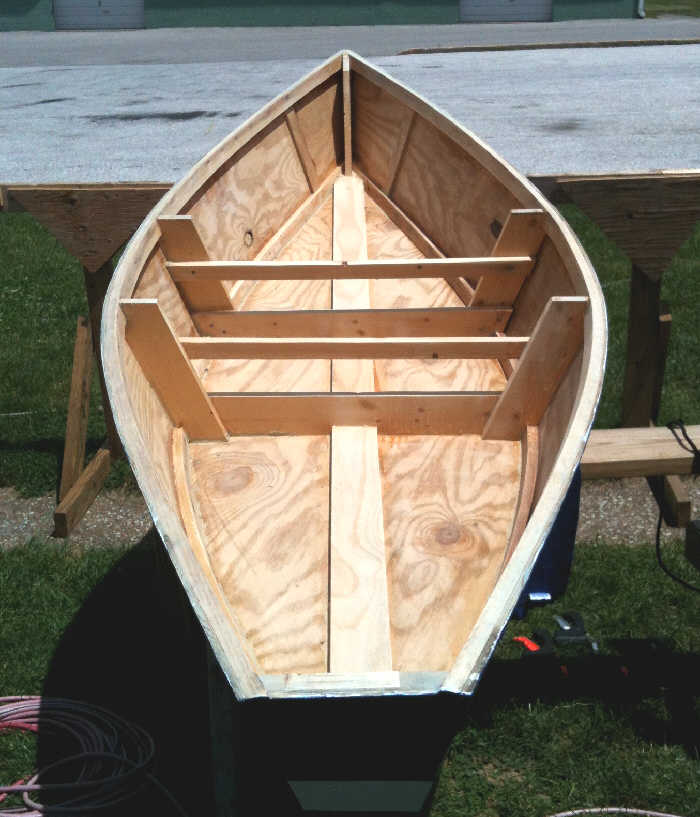
Step-by-Step Guide: How to Build a Simple Wooden Boat
Building a wooden boat can be a rewarding and challenging project. This guide will walk you through the process of constructing a simple boat, ideal for beginners. While this guide is designed for a basic boat, the principles can be applied to more complex designs.
Planning and Design
Determine Your Needs and Goals
Begin by defining the purpose of your boat. Will it be used for fishing, recreation, or simply as a decorative piece? Consider factors such as the size, weight capacity, and desired speed.
Choose a Boat Design
There are countless boat designs available online, in books, and at local libraries. Choose a simple design that matches your skill level and resources. Consider a flat-bottomed rowboat, a simple dinghy, or a canoe as good starting points.
Gather Materials
Once you have a design, create a materials list. This will include:
- Wood: Choose marine-grade plywood or cedar for the hull. Select sturdy, knot-free wood for optimal strength.
- Fasteners: Use bronze or stainless steel screws and nails for durability. Avoid galvanized fasteners, which can corrode in saltwater.
- Epoxy resin: Epoxy provides water resistance and structural integrity. Choose a marine-grade epoxy for long-lasting performance.
- Fiberglass cloth: Fiberglass adds further strength and water resistance. Choose a lightweight cloth for ease of application.
- Paint: Use marine-grade paint for protection and aesthetics.
- Tools: This includes basic woodworking tools such as saws, drills, sanders, clamps, and measuring tape.
Construction: Building the Hull
Cut the Wood
Carefully cut the wood pieces to match the dimensions on the boat plan. Use a saw for straight cuts and a jigsaw for curved shapes. Ensure all cuts are precise for a well-fitting hull.
Assemble the Frames
Construct the frames of the boat, typically using plywood or strips of wood. Follow the design plans carefully. Use strong wood glue and appropriate fasteners to secure the frames.
Attach the Planking
Attach the planks to the frames, creating the hull of the boat. Begin by attaching the planks at the keel (bottom) and work your way up the sides. Use wood glue and fasteners to ensure a tight fit.Fairing the Hull
After planking is complete, ensure the hull is smooth and free of any bumps or gaps. This process is called fairing. Use wood filler or epoxy putty to smooth out any irregularities. Allow the filler to dry completely before sanding.Finishing and Refinement
Glassing and Sanding
Apply fiberglass cloth to the hull, using epoxy resin as a binder. This creates a waterproof, durable barrier. After the epoxy cures, sand the hull smooth to create a smooth surface for painting.Painting
Paint the hull with marine-grade paint. Apply multiple coats for optimal protection. Consider using primer before the final coat for better adhesion. Allow the paint to dry completely before adding any additional features.Adding Hardware
Install any necessary hardware such as seats, oars, and cleats. Follow the manufacturer's instructions for installation.Launching and Maintenance
Once your boat is complete, launch it in a calm body of water. Test the boat for stability and leaks. Make any necessary adjustments before using it regularly.
Regular Maintenance
To ensure the longevity of your wooden boat, maintain it regularly. This includes:
- Cleaning and drying the boat after each use to prevent mold and mildew.
- Inspecting for any damage or leaks and making repairs promptly.
- Applying a coat of paint or varnish annually to protect the hull.
Safety Considerations
Boat safety is paramount. Remember these essential precautions:
- Always wear a life jacket when boating.
- Never boat alone. Have a buddy or a designated spotter.
- Be aware of weather conditions and water currents.
- Check the boat's stability and capacity before boarding.
- Learn basic boating safety rules and regulations.
Building a wooden boat can be a fulfilling project. By carefully following these steps and emphasizing safety, you can create a durable and enjoyable vessel for years to come. Remember, patience and attention to detail are key to a successful boat building experience.
0 comments:
Post a Comment
Note: Only a member of this blog may post a comment.